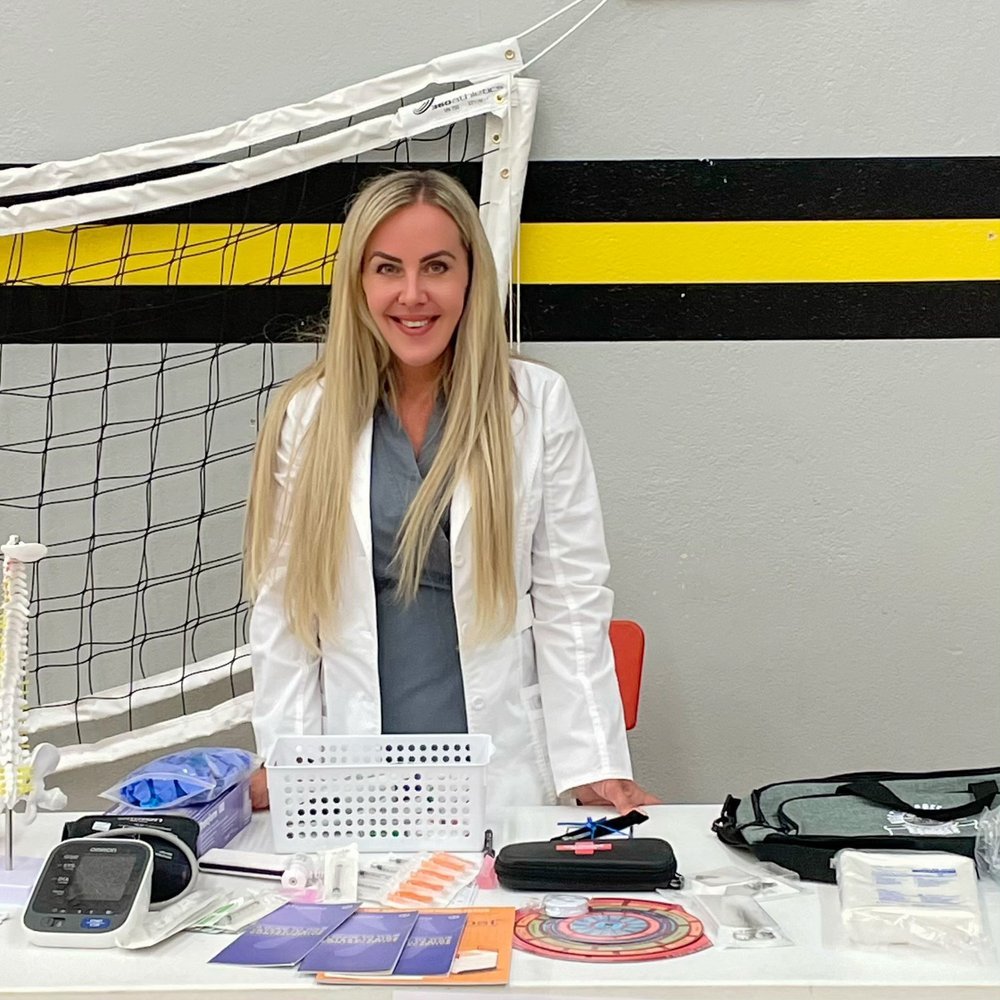Angela de Varennes: Healing Others While Healing Herself (part 2)
Angela de Varennes: Healing Others while Healing Herself
Part Two | Trigger warning // domestic violence
Some stories are too incredible to tell all at once. 2022 Catherine Dianne Davidson Memorial Scholarship recipient Angela de Varennes’ is one of them. This is part two of a two-part series.
Throughout her studies, Angela began to observe the numerous healthcare deficits Indigenous peoples and other marginalized populations in Canada face.
Knowing she needed to try and make a difference; she began her career as a medical team lead at Bigstone Cree Nation Health Commission and enrolled in a program at the University of Nevada Las Vegas (UNLV).
As a team lead for two Indigenous, band-run, medical clinics on a reserve in Northern Alberta and Edmonton, Angela explained that she had a lot to learn as a non-Indigenous person in a leadership role.
“You can’t come in and start changing things, you need to learn and understand the needs of the community and the team. My first two years were spent getting people to trust me—they needed to know that I cared and wasn’t leaving,” she said.
As a leader, Angela was determined to be supportive, while simultaneously advocating for much-needed policy and procedure changes.
Leading and supporting
Rooted in her own experiences, Angela strongly believes that leadership shouldn’t be hierarchical and must be full of compassion and understanding.
“In Cree, leadership means understanding. We need to do away with hierarchy. You can be a good leader and still be very human,” she said.
“If you don’t have staff, you don’t have a job. Your staff is the reason you have a job and you need to treat them well.”
She explained that nurses face such a diverse range of experiences on the job—and in their personal lives—that isn’t always considered by management.
Reflecting on her experiences to make change
As part of her Ph.D. program, Angela is currently studying the experiences of female healthcare providers with a personal history of domestic violence when caring for patients experiencing the same—an area that has been significantly underrepresented in research.
Given her own experiences, she touched on the fact that there is a belief that educated women don’t face domestic violence.
“Any person can be in a situation with domestic violence. People often think: ‘I’m an educated person, I should know better. No one is going to believe me because I should know better’… but that’s not the case,” she said.
She reflected on the fact that she is incredibly privileged, but often wonders how folks who don’t have her privilege are being treated. She also explained that domestic violence affects marginalized communities the most significantly.
“All my experiences and research interests are interconnected. Persons who are marginalized need more help than what is currently out there. I want to help as much as I can by advocating for policy and procedure changes,” expressed Angela.
When asked what she’d say to nurses who are also domestic violence survivors/victims, Angela had some tear-jerking advice.
“Make sure you treat yourself like you’d treat a patient going through the same thing,” she said.
“You would always believe a patient, be gentle with them, and give them the allowance to go back and forth or make mistakes. We are forgiving of our patients and are always supportive. We need to do this for ourselves too.”
Looking forward
Angela doesn’t dwell on the past though, and in fact, uses it to propel her towards making even more change.
“I think these things happen for a reason,” she said. “As awful as it was for us, and for my kids, it has helped us help others. I would not know what it was like for others if I had not been through it myself,” she said.
“Being awarded the Catherine Dianne Davidson Memorial Scholarship helps relieve some of the financial stress. I am extremely grateful for any kind of help I get to allow me to continue toward my goal of earning my Ph.D. and making a difference in the world,” she concluded.

